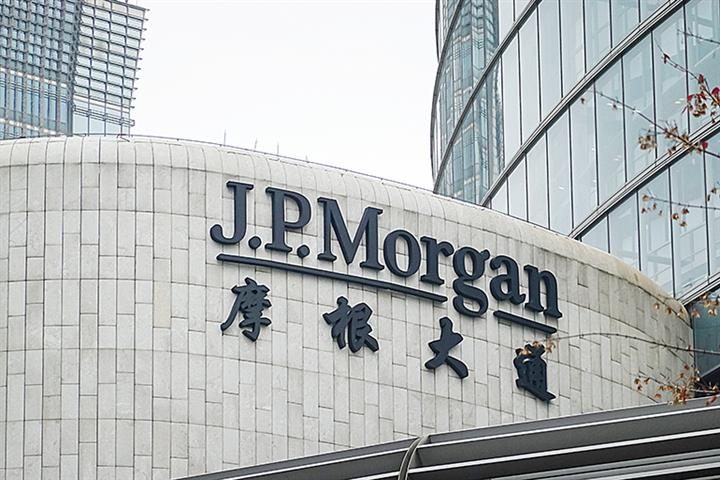 J.P. Morgan Seeks Ways to Evolve in China Amid New Economy’s Rise, Asia CEO Says
J.P. Morgan Seeks Ways to Evolve in China Amid New Economy’s Rise, Asia CEO Says(Yicai Global) June 22 -- The new economy featuring sectors such as electric vehicles and information technology is one of the main driving forces of China’s economic growth and a key source of clients, Filippo Gori, chief executive of J.P. Morgan Chase Asia Pacific, said in recent interview with Yicai Global.
The shift toward newer industries has pushed banks to expand their securities business in the Chinese market, including J.P. Morgan Securities China, which opened in March 2020.
Yicai Global: What is your China strategy going forward? Is the securities business the most important pillar for you as China’s economy moves toward direct financing with more companies securing high valuations in the capital market?
Filippo Gori: We understand that technology impacts and influences all key sectors so our teams and people, both locally and globally, have strong knowledge in areas such as cloud computing and AI, and our clients really appreciate this.
Investment banking is a very important pillar of our business in China. We are in a strong position to serve our clients and our newly established securities business in China has already completed a number of firsts across different products and sectors. One example would be in the burgeoning healthcare sector where we acted as joint bookrunner for Wuxi AppTec’s CNY6.5 billion (USD1 billion) A-share primary placement.
But the full scope of how we support clients in the new economy in China goes beyond investment banking and financing.
For example, another area we are focused on is e-commerce. This is a critical component of the new economy and we are seeing the rise of e-commerce marketplaces and B2B2C businesses. As a result, there are tens of thousands of sub-merchants and small companies that operate in these marketplaces who are connected to our clients, so J.P. Morgan is not only investing in building digitally native solutions for larger merchants but also servicing platforms built for a large number of participants.
In May 2020, our corporate banking and wholesale payments business worked with a leading e-commerce platform in China to successfully implement the SWIFT gpi for Corporates (g4C) Inbound Tracking service, which is a messaging service that tracks the incoming payments made to 150,000 suppliers on the company’s global trading platform. This enables monitoring of inbound transactions in real time before the proceeds are credited to its bank accounts, which has dramatically improved certainty of payment, the efficiency of the order cycles, and the experience of both the suppliers and their buyers.
YG: What are the challenges for J.P. Morgan in evolving alongside China’s economic shift?
FG: Our immediate priority is to obtain all the key licenses that we need and to set up local capabilities to support these licenses.
We will continue to develop a competitive localized offering to meet our clients’ needs and bring value based on the key strengths of our global platform and expertise as China’s financial markets open up further.
YG: The emergence of central bank digital currencies (CBDCs) is gathering speed, with more than half of the world’s central banks actively considering them. The digital yuan is on the forefront of this. What do you think of the progress so far?
FG: CBDCs are certainly a hot topic these days, and China is at an advanced stage. The e-yuan pilot program which started last year covers millions of users.
We do see the potential of the underlying blockchain technology, which will improve the cost, efficiency and transparency of the global financial system. Our view, however, is that central bank money is unlikely to displace commercial bank money in a big way because if deposit taking is impacted, then you start disrupting credit. From our conversations, we think central banks do not want to disrupt credit markets.
At J.P. Morgan, we are continuing to evaluate it and how best it can be used to serve our clients. At the same time, we also believe that greater regulatory clarity would be extremely helpful in providing the industry with the ability to serve clients while fostering financial innovation.
A number of foreign investors are exploring China's equity and bond markets. Fund managers around the world are also looking for better risk management assets. For them, the Chinese capital market is very attractive.
Editor: Tom Litting